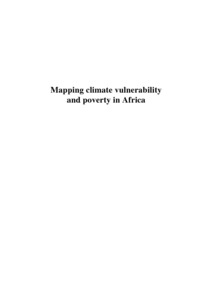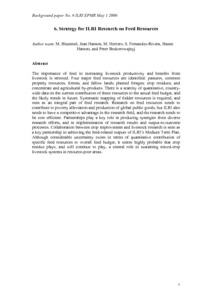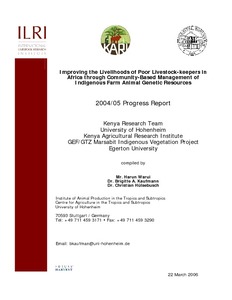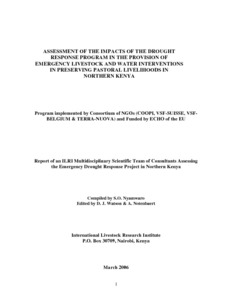Location
Vision, mission and strategy
ILRI's strategy 2013-2022 was approved in December 2012. It emerged from a wide processof consultation and engagement.
ILRI envisions... a world where all people have access to enough food and livelihood options to fulfil their potential.
ILRI’s mission is... to improve food and nutritional security and to reduce poverty in developing countries through research for efficient, safe and sustainable use of livestock—ensuring better lives through livestock.
ILRI’s three strategic objectives are:
- with partners, to develop, test, adapt and promote science-based practices that—being sustainable and scalable—achieve better lives through livestock.
- with partners,to provide compelling scientific evidence in ways that persuade decision-makers—from farms to boardrooms and parliaments—that smarter policies and bigger livestock investments can deliver significant socio-economic, health and environmental dividends to both poor nations and households.
- with partners,to increase capacity among ILRI’s key stakeholders to make better use of livestock science and investments for better lives through livestock.
This is ILRI’s second ten-year strategy. It incorporates a number of changes, many based on learning from the previous strategy (2000–2010, initially produced in 2000 and modified in 2002), an interim strategy (2011–2012) and an assessment of the external and internal environments in which the institute operates.
Members:
Resources
Displaying 791 - 795 of 1152Mapping climate vulnerability and poverty in Africa
The world’s climate is continuing to change at rates that are projected to be unprecedented in recent human history. Some models are now indicating that the temperature increases to 2100 may be larger than previously estimated in 2001. The impacts of climate change are likely to be considerable in tropical regions. Developing countries are generally considered more vulnerable to the effects of climate change than more developed countries, largely attributed to a low capacity to adapt in the developing world.
Strategy for ILRI research on feed resources
The importance of feed in increasing livestock productivity and benefits from livestock is stressed. Four major feed resources are identified: pastures, common property resources, forests, and fallow lands; planted forages; crop residues; and concentrate and agricultural by-products. There is a scarcity of quantitative, countrywide data on the current contribution of these resources to the actual feed budget, and the likely trends in future. Systematic mapping of fodder resources is required, and seen as an integral part of feed research.





